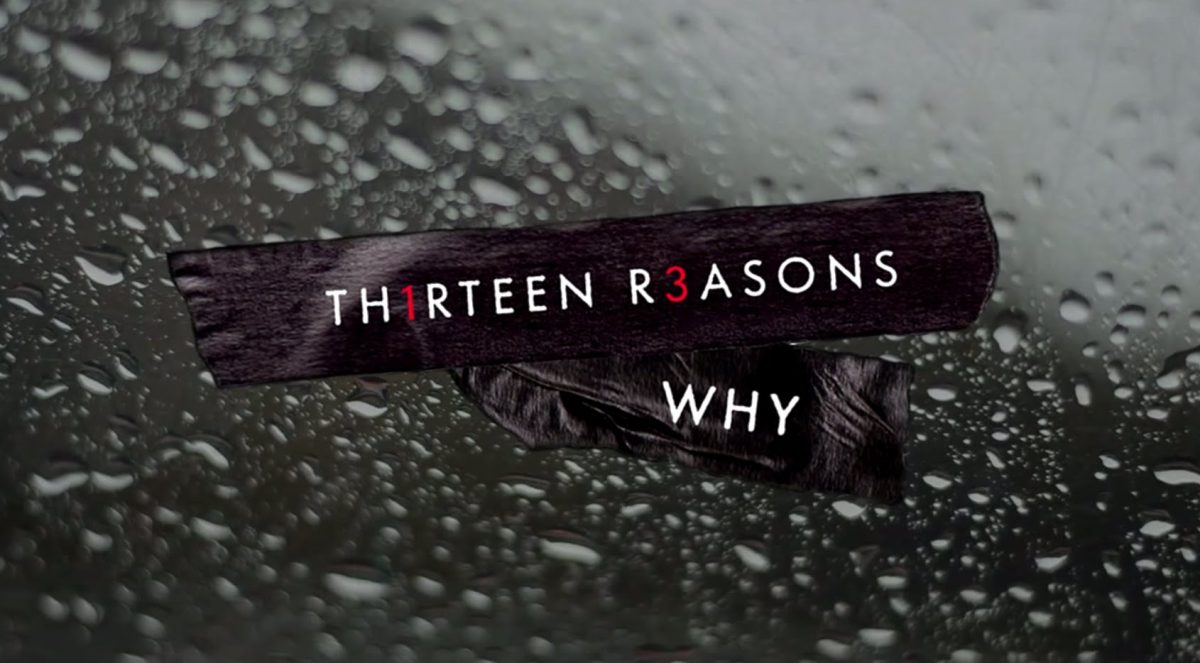Warning: This article contains spoilers about the show 13 Reasons Why.
If you’ve been keeping up with current social fads, you’ve probably heard about Netflix’s new show 13 Reasons Why by now. In the matter of a month after being released, the show has exploded as a hit and immediately entered cultural mainstream; 13 Reasons Why is the most tweeted show of 2017 so far and has created a buzz amongst young adults. There are claims that the show has already had more social volume than any other Netflix show ever released.
Based on the best-selling novel by Jay Asher, the show focuses on why Hannah Baker, a teen from an almost idyllic family, commits suicide. Hannah leaves thirteen audio tapes behind dedicated to the particular people she blames for her suicide: reasons like witnessing sexual assault, being raped by her high school’s most popular boy, endless acts of bullying and closest friends turning backs and betraying Hannah.
As the show’s popularity peaks, there’s been an increasing amount of controversy surrounding the show and how the producers approach teen suicide, an extremely sensitive subject matter. Some critics call the show’s portrayal of suicide, bullying and rape a “irresponsible dramatisation” (New Statesman) as it’s being glorified, while others believe that 13 Reasons Why needs to be mandatory viewing in schools across the country. In any case, the show has been starting conversations left and right about teen suicide.
The main issue with the show is how it doesn’t instill any sense of hope in terms of the will to persevere and avoid ending your life. The show barely presents any alternative to committing suicide; Hannah reaches out to a school counselor to attempt to report the sexual assault but doesn’t make an effort to communicate her problems effectively, and on the other hand all the counselor offers is to either disclose the name of the rapist or essentially ‘move on’. Granted that her school counselor might not be the best, I can see why she felt the need to give up but there are so many more options to seek help from – and even if Hannah didn’t decide to use these, it would be sensible for the show producers to mention alternative options such as a therapist or even a suicide hotline. After all, wouldn’t the show have a far more positive effect on young adults if the show would raise awareness for suicide prevention? The show has an extremely narrow narrative, which implies that bullying leads to suicide, but in reality, few people who experience bullying or sexual assault end up committing suicide.
While discussing the show, 9th grader Sami Kattan says, “It’s a very well made show, it’s entertaining and keeps me on the edge of my seat. However, I believe it puts suicide in the wrong light as it uses it for revenge.” Rather than ending her life because she really can’t live it anymore, Hannah uses her ending her life as the ultimate ‘eff you’ to all those who caused her harm, meaning she committed suicide to gain revenge. By making this Hannah’s motive to end her life, the show is suggesting an incorrect incentive for suicide: it isn’t portraying that your life is worth more than just a way to prove somebody wrong or gain revenge.
Towards the end of 13 Reasons Why, the producers include an extremely graphic and emotionally stressful scene of Hannah actually killing herself. She returns from school, makes her bed, mails the complete set of tapes to the first person on her list and runs a bath. What follows this is an incredibly realistic depiction of her ending her life; making deep slits with razor blades stolen from her parent’s pharmacy, and letting the cuts bleed out into the bath water until her heavy breathing finishes and later stops. The depiction of suicide feels so real, maybe a little bit too real: it’s so intense and realistic that critics and mental health specialists are labeling the scene as dangerous and harmful to its audience.
The common consensus in criticism of 13 Reasons Why is that the show is glamorizing and romanticizing suicide. There has been frequent discussion of the concept of ‘suicide contagion’ that the show has been causing: “Critics, though, have worried that it may glamorize suicide or normalize it as a legitimate option when dealing with interpersonal predicaments—leading to more suicides. It is well known that suicide can be a contagious phenomenon. ‘Copycat’ suicides are seen in local clusters from time to time. Any possible causes of such contagion should be taken seriously, but the science shows that the role that fiction can play in inspiring suicide is at best unclear.” (Scientific American)
Overall, the show is most likely more unrealistic than enlightening, and although the producer’s approach to portraying suicide is far from perfect, by entering cultural mainstream 13 Reasons Why is raising awareness and putting a spotlight on a subject that young adults need to feel more comfortable with discussing.
By Milla Snow
































































